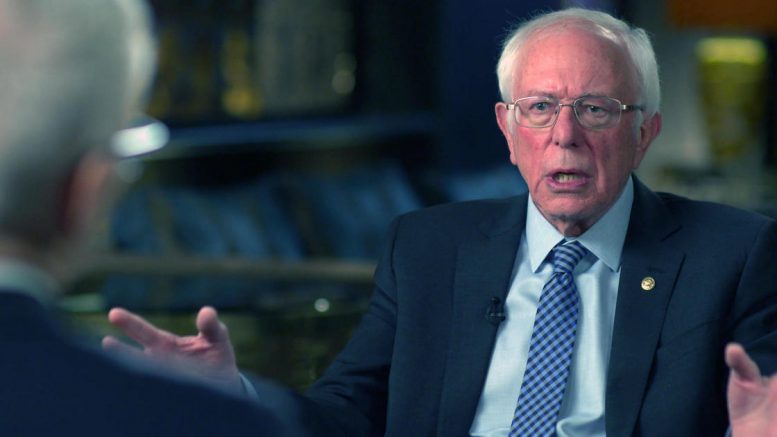By: Victor Jorges / News Director
Bernie Sanders, the Democratic front-runner, said it wouldn’t be fair to say that everything under the Fidel Castro control of Cuba is “bad” and people all over south Florida are not happy – including the chairs of the Miami-Dade and Florida Democratic Party.
When asked about comments he made three decades ago about the Cuban regime, Sanders said: “We’re very opposed to the authoritarian nature of Cuba but you know, it’s unfair to simply say everything is bad. You know? When Fidel Castro came into office, you know what he did? He had a massive literacy program. Is that a bad thing? Even though Fidel Castro did it?”
Some Cuban-Americans, like Lourdes Diaz, president of the Democratic Hispanic Caucus in Broward County, feels “disgusted and insulted” as she’s quoted in an article by the New York Times. She said that she’s no longer defending him.
“I think, quite honestly, that folks are upset because they feel that the way Sanders is characterizing the history is at best simplistic or dismissive of some of the experiences that they went through,” said Assistant Professor of Latin American History, Michael Bustamante.
He was referring to Castro’s initiative to make Cubans literate in the 60’s. Many feel like this was an effort to perform a brainwash of sorts on the island’s youth.
“[It] dealt with a real problem in Cuba, which was that in the rural parts of the country in 1959, [roughly] 50 percent of the people were illiterate,” said Bustamante. “I think we could all agree that’s a problem.”
However, Bustamante also said that it is historically inaccurate to deny the need for a literacy campaign altogether. He believes that what Sanders left out of his commentary is that the way the program was carried out was closely tied to the political process of the time. According to him, it was a state-led initiative that was highly political and delivered at a first-grade reading level.
“Although it is true that Castro led an education campaign in Cuba that drastically increased the literacy rate, the campaign was ultimately used to promote government propaganda in students’ teachings like in North Korean schools,” said Christopher Brazela, a sophomore majoring in information technology and minoring in business from Hatian descent. He said he’s not surprised by Sanders’ statement.
This statement, which he made during a “60 Minutes” interview that aired on CBS on Feb. 23, came after a question regarding his previous Cuba-related comments in the 80s.
Nearly 10 percent of FIU students, or 4,617 students, were born in Cuba according to FIU Media Relations.
According to the National Study for Learning, Voting and Engagement done by Tufts University, college students’ voting turnout increased from 19 percent to 40 percent between 2014 and 2018. The study included almost 10 million students from more than 1,000 colleges nationwide.
More specifically, the Hispanic vote also more than doubled. In 2014, the turnout for hispanic students in public four-year universities like FIU was 15.3 percent. Four years later, the turnout was 38.3 percent. That’s a 150.3 percent increase.
Sanders, a self-described Democratic socialist, is currently leading the polls. The latest, from Reuters-Ipsos, reveals that Sanders has 26 percent backing, while ex-Vice President Biden and former New York City Mayor Bloomberg had 15 percent.
“There’s a way in which I’m puzzled by the insistence which with Sanders has kind of stuck to this label,” said Bustamante.”When I think a lot of what he’s proposing in terms of policy, you could make an argument that is pretty consistent with what in other parts of the world passes is social democracy rather than democratic socialism. It’s sort of an inverted emphasis.”
Castro died in 2016, but during his regime, he adhered to a socialist economic model and a one-party Communist rule.
He came into power in 1959 after successfully removing the previous Bautista regime using aggressive military tactics. Later, in 1961, he declared himself as a Marxist-Leninist and said he would be one “until the end of [his] life,” during a televised address on Dec. 2 of that year.
According to Bustamante, there are parts of the conversation missing on both sides.
“Revolutions don’t happen out of nothing,” said Bustamante, who specializes in Cuban history. “Six million people in Cuba at the time responded to them in all types of ways. Some opposed from the start, some became opposed over time, and some continue to support, maybe erroneously from our perspective, the political process at the time.”
Castro continued with this ideology even after the Soviet Union disintegrated in 1991.
According to Bustamante, there’s already commentary of Miami Republicans that say that if a democrat goes into the White House, the nation will turn into Moscow.
“[They’re] scare tactics, and they’re cheap,” said Bustamante. “There’s a way to have a legitimate argument with Sanders about maybe the cost of what he wants to do.”
Bustamante said that there is a scare tactic floating around the idea of sanders coming into office and the country tuning into a “communist apocalypse.”
“That’s quite illogical,” said Bustamante. “I hope voters can discern the difference.”
In terms of voting, he said that he’s unsure whether or not this means that Miami-Dade will no longer be blue.
“If Sanders is the nominee, in order to win this state, he’s going to have his work cut out for him,” said Bustamante. “I don’t think his comments help him with that group unless he does something to show a little bit more nuanced,” he later said.
The label that Sanders uses of a “democratic socialist” will be exploited by the Republican party if he becomes the nominee, assures Bustamante.
“ I think they will do it in a way that is, to a large degree, very disingenuous. And will recall some of the worst kinds of episodes of red-baiting and McCarthyism in US history,” said Bustamante.
The majority of Sanders’ antagonists from the Democratic party, which at times seems to be self-devouring, took to Twitter to share their feelings about the front runner’s wishy-washy remarks about the Castro epoch.
Pete Buttigieg in a tweet said: “After four years of looking on in horror as Trump cozied up to dictators, we need a president who will be extremely clear in standing against regimes that violate human rights abroad. We can’t risk nominating someone who doesn’t recognize this.”
Michael Bloomberg also reacted on Twitter: “Fidel Castro left a dark legacy of forced labor camps, religious repression, widespread poverty, firing squads, and the murder of thousands of his own people. But sure, Bernie, let’s talk about his literacy program.”
“He seems to have found more inspiration in the Soviets, Sandinistas, Chavistas, and Castro than in America,” Biden senior adviser, Cristóbal Alex, said in a statement.
Rep. Debbie Mucarsel-Powell, D-Florida, tweeted: “As the first South American immigrant member of Congress who proudly represents thousands of Cuban Americans, I find Senator Bernie Sanders’ comments on Castro’s Cuba absolutely unacceptable.”
Finally, Florida Republican Sen. Marco Rubio also commented on Sanders’ words, saying, “he’s wrong about why people didn’t overthrow Castro. It’s not because ‘he educated their kids, gave them health care’ it’s because his opponents were jailed, murdered or exiled.”






Be the first to comment on "Bernie Sanders Feels The Cuban Heat After Remarks About Castro’s Regime"